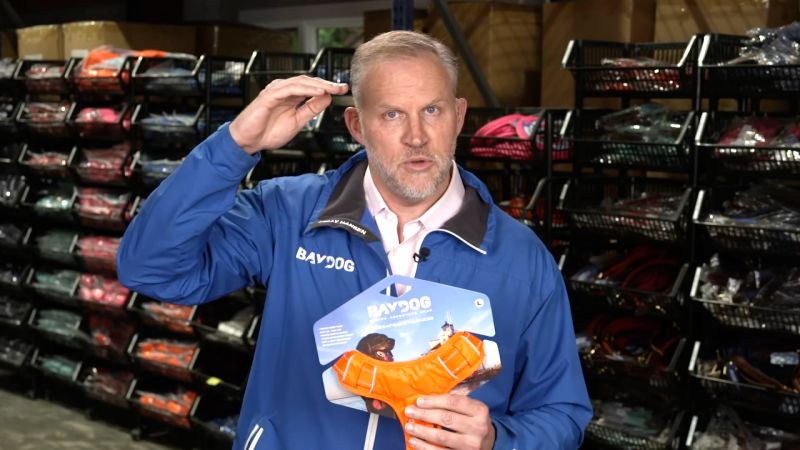The article focuses on the concerns of Barton O’Brien, a Marine veteran and business owner, regarding the potential negative impact of tariffs imposed during Trump's administration on his pet gear business. This perspective highlights the financial realities that many small business owners face, rather than a sense of nationalistic pride.
Economic Impact of Tariffs
O’Brien articulates that the tariffs could significantly affect his profits, indicating that the issue is rooted in economics rather than patriotism. This reflects a broader concern among small businesses that rely on imported materials or goods, emphasizing the potential for increased costs that could lead to higher prices for consumers or reduced profit margins for businesses. By presenting his situation, O’Brien aims to shed light on the real-world implications of trade policies.
Public Perception and Sentiment
The article seeks to cultivate an understanding among the public regarding the challenges that tariffs pose not only to businesses but also to consumers. It highlights a sentiment of empathy towards small business owners, potentially fostering a collective awareness of economic issues that may not be immediately visible to the general public. The narrative positions O’Brien as a relatable figure, which could garner support from fellow veterans and small business advocates.
Potential Concealed Issues
While the article focuses on O’Brien's challenges, it may obscure broader discussions about the effectiveness of tariffs as a tool for trade negotiation or the long-term economic consequences of such policies. By concentrating on individual stories, there is a risk of diverting attention from larger systemic issues that tariffs might exacerbate or resolve.
Authenticity and Reliability
The reliability of the information hinges on O’Brien’s personal experiences and the broader context of economic data regarding tariffs. The article appears to be authentic and grounded in real business concerns. However, without comprehensive data on the overall market impact, the story might only present a partial view.
Connection to Broader Narratives
In comparison to other news articles discussing tariffs, this piece aligns with a growing narrative of the struggles faced by small businesses under heightened economic pressures. It connects to larger conversations about the current political climate and the economic strategies employed by the government, particularly concerning trade policies.
Influence on Communities and Markets
The implications of this article may resonate with small business owners, veterans, and economic policymakers. The sentiments expressed could lead to increased advocacy for policy changes or support for small businesses facing similar challenges. In the financial markets, such articles could influence investor sentiment, particularly in sectors reliant on imported goods.
Audience Engagement
This news piece is likely to engage communities that prioritize veteran affairs, small business advocacy, and economic stability. It appeals to those who may feel disenfranchised by national policies that do not account for individual or local business needs.
Market Impact
From a market perspective, the article could influence stock prices of companies in the pet industry or those reliant on imports. Investors may react to news of tariffs based on perceived impacts on profit margins, which can lead to fluctuations in stock performance.
Global Power Dynamics
In terms of global power dynamics, the discussion around tariffs is particularly relevant, as it reflects the ongoing tensions in international trade relations. The implications of such policies can extend beyond the U.S. market, affecting global supply chains and economic stability.
AI Utilization in Reporting
It’s possible that AI tools were used in the composition of this article, particularly in data analysis or trend identification. However, the narrative style suggests a human touch, ensuring that emotional resonance is maintained throughout the piece. If AI was involved, it may have influenced the emphasis on economic data and analysis rather than purely anecdotal evidence.
In conclusion, the article effectively raises important questions about the impact of tariffs on small businesses and the economy while framing O’Brien’s personal story as a microcosm of larger economic issues. The narrative promotes empathy and understanding, though it may overshadow broader systemic challenges.
